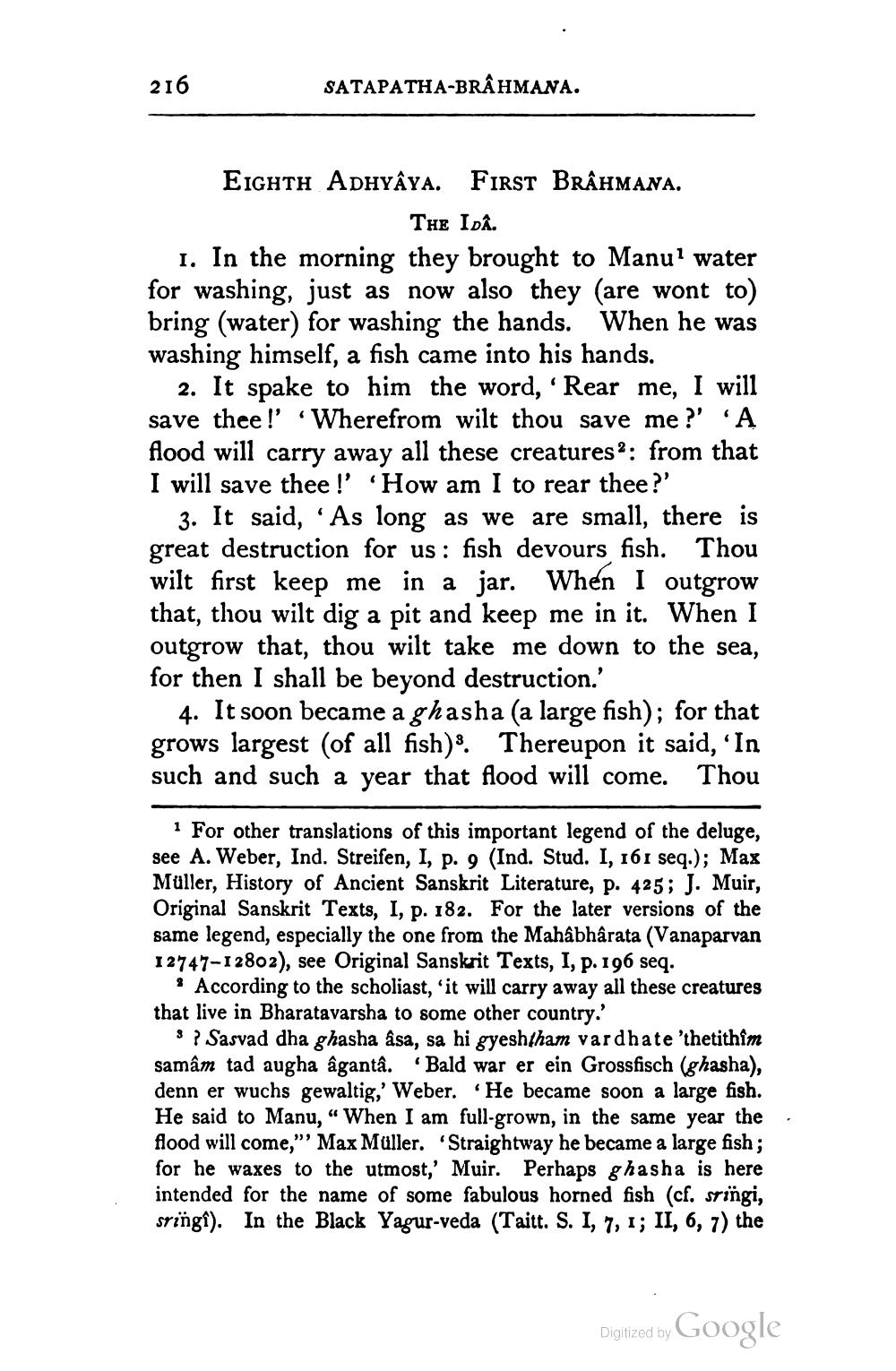________________
216
SATAPATHA-BRAHMANA.
Eighth ADHYÂYA. First BRÂHMANA.
THE ID. 1. In the morning they brought to Manu? water for washing, just as now also they (are wont to) bring (water) for washing the hands. When he was washing himself, a fish came into his hands.
2. It spake to him the word, Rear me, I will save thee!' Wherefrom wilt thou save me?' 'A food will carry away all these creatures 2: from that I will save thee!' 'How am I to rear thee?'
3. It said, “As long as we are small, there is great destruction for us : fish devours fish. Thou wilt first keep me in a jar. When I outgrow that, thou wilt dig a pit and keep me in it. When I outgrow that, thou wilt take me down to the sea, for then I shall be beyond destruction.'
4. It soon became a ghasha (a large fish); for that grows largest (of all fish). Thereupon it said, 'In such and such a year that flood will come. Thou
1 For other translations of this important legend of the deluge, see A. Weber, Ind. Streifen, I, p. 9 (Ind. Stud. I, 16. seq.); Max Müller, History of Ancient Sanskrit Literature, p. 425; J. Muir, Original Sanskrit Texts, I, p. 182. For the later versions of the same legend, especially the one from the Mahabharata (Vanaparvan 12747-12802), see Original Sanskrit Texts, I, p. 196 seq.
* According to the scholiast, it will carry away all these creatures that live in Bharatavarsha to some other country.'
S? Sasvad dha ghasha ása, sa hi gyesh tham vardhate 'thetithîm samâm tad augha âganta. Bald war er ein Grossfisch (ghasha), denn er wuchs gewaltig,' Weber. He became soon a large fish. He said to Manu, “When I am full-grown, in the same year the. flood will come,"' Max Müller. 'Straightway he became a large fish; for he waxes to the utmost,' Muir. Perhaps ghasha is here intended for the name of some fabulous horned fish (cf. spingi, sringî). In the Black Yagur-veda (Taitt. S. I, 7, 1; II, 6, 7) the
Digitized by Google




